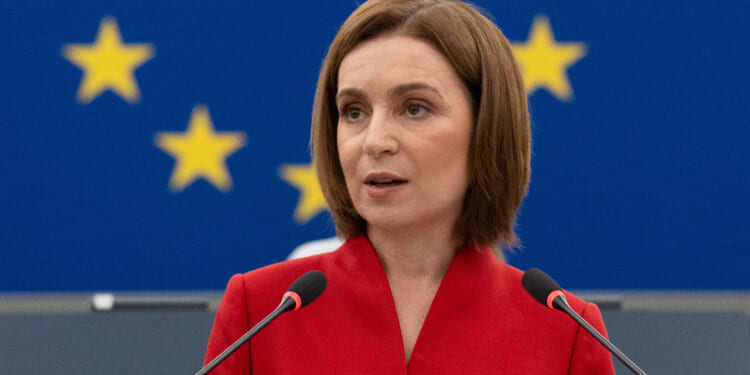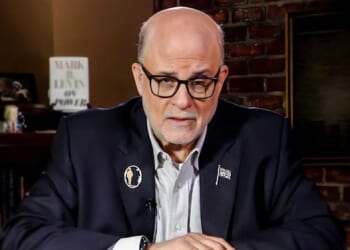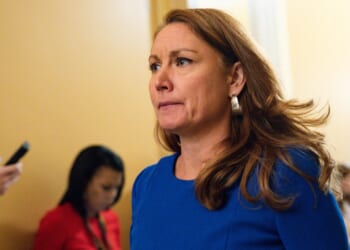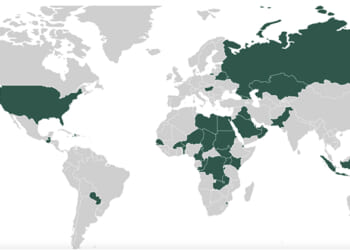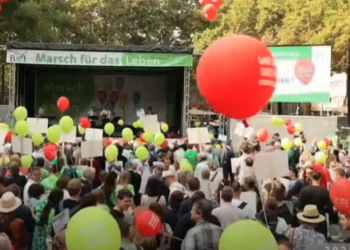Moldovans have voted for Europe. Can President Sandu end a frozen conflict with Russia-backed Transnistria and pull her country closer to the EU?
Moldova’s parliamentary elections on Sunday delivered a surprising victory for President Maia Sandu’s Party of Action and Solidarity (PAS), which secured an outright majority—55 of 101 seats—reinforcing the country’s pro-European trajectory. The vote represents part of a greater geopolitical struggle over Moldova’s future and the fate of Transnistria, the Russia-aligned, breakaway strip of territory along the Dniester River.
In this new episode of In the National Interest, Daniel Runde, a senior adviser at BGR Group and the Center for Strategic and International Studies, discusses his latest article on resolving the frozen, decades-old conflict.
Energy has long been Moscow’s pressure point in the region. Ukraine’s decision to let Russia’s gas-transit contract lapse on January 1 severed the flow that historically powered Transnistria’s grid and industry, forcing shutdowns and emergency measures across the region. Chişinău, meanwhile, is racing to complete high-voltage links to Romania to end dependence on Transnistrian electricity.
With Sunday’s victory, Runde argues that President Sandu now has both the political space and the timeline to act. “You need three basic things for Moldova to go along the path of, say, Estonia,” he explains. “It needs a gas divorce from the Russians. It needs an electricity divorce from Transnistria. And it needs a clear path to join the EU.” With PAS’s majority and EU accession talks advancing, Sunday’s vote “strengthened Sandu’s hand … for hard things and tricky things like a peace deal with Transnistria.”
The politics inside the enclave may also be shifting. “30% of the Transnistrian voters voted for Maia Sandu’s Western-focused party,” Runde says, interpreting the result as a sign that younger residents and business interests could be coaxed toward reintegration if the economic offer is credible. His pitch is unapologetically transactional: modernize the power plants and steel mills, open routes that support Ukraine’s reconstruction, and mobilize Western investment. “If you had, say, American investors in the power plant and the metallurgical plant, wouldn’t they want to be a part of that process and benefit?”
Moscow’s influence still remains a serious obstacle. Roughly 1,500 Russian “peacekeeping” troops continue to backstop the separatist authorities and complicate any potential settlement.
How far can Chişinău go without provoking a crisis, and what role should Washington play in aligning the carrots and sticks? Runde attempts to offer a roadmap.
Listen now on Apple, Spotify, or wherever you get your podcasts.
About the Speakers:
Jacob Heilbrunn is editor of The National Interest and is a nonresident senior fellow at the Atlantic Council’s Eurasia Center. He is the author of They Knew They Were Right: The Rise of the Neocons, which The New York Times included on its 100 notable books of the year in 2008, and America Last: The Right’s Century-Long Romance with Foreign Dictators. He has written on both foreign and domestic issues for numerous publications, including The New York Times, The Washington Post, The Wall Street Journal, Financial Times, Foreign Affairs, Reuters, Washington Monthly, and The Weekly Standard. He has also written for German publications such as Cicero, Frankfurter Allgemeine Zeitung, and Der Tagesspiegel.
Daniel F. Runde is the author of the book The American Imperative: Reclaiming Global Leadership Through Soft Power (Bombardier Books, 2023).
Image: Moldovan President Maia Sandu speaks before the European Parliament, September 9, 2025 (European Parliament via Wikimedia Commons.)

